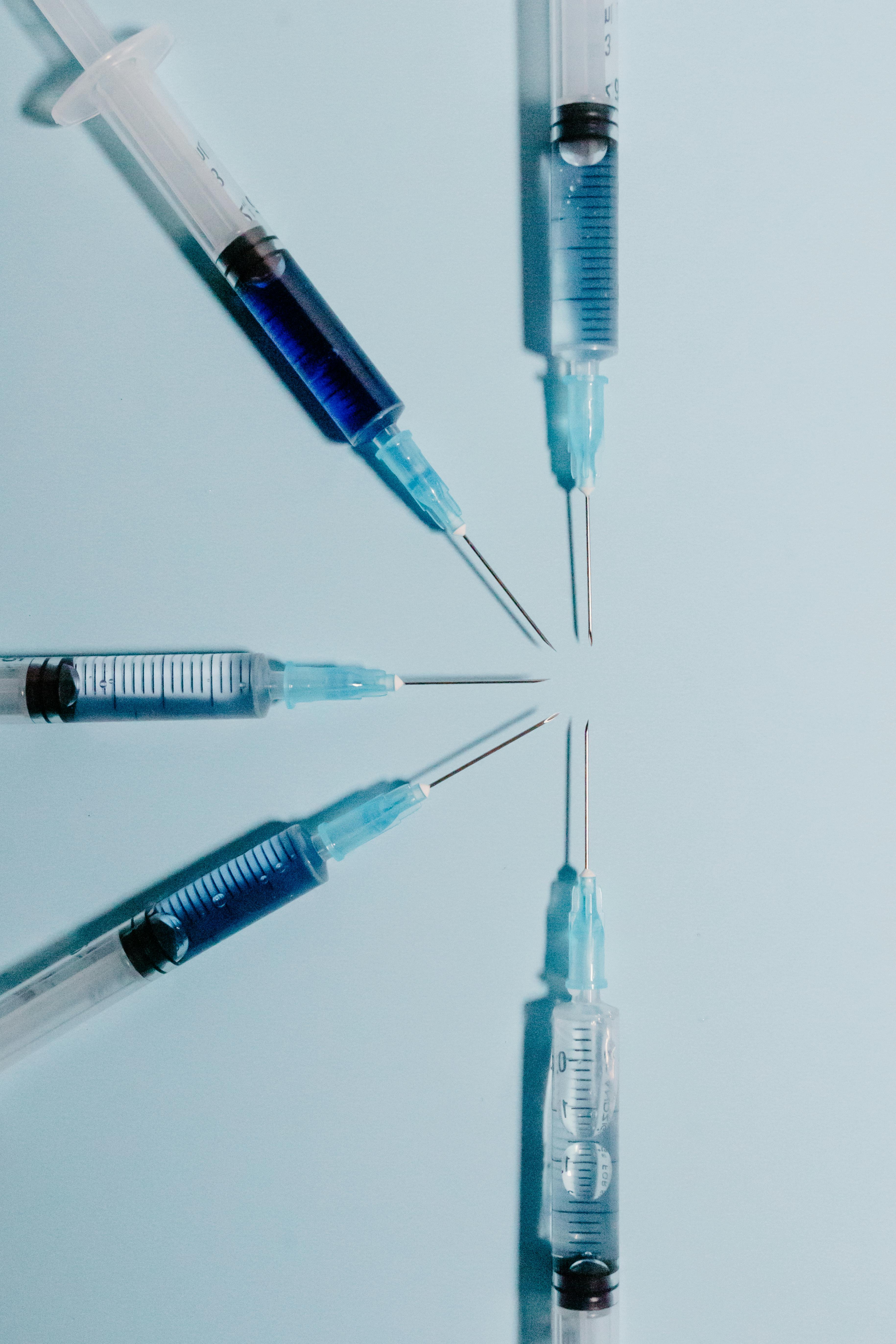Birth Control for PCOS: What to Choose?
Learn about what PCOS is, which types of birth control are best for treating symptoms of PCOS, and effective lifestyle changes for PCOS and ovarian function.

A primary care membership for patients who want more. Primary Care. Nutrition. Wellness. All under one roof.
What Is PCOS?
Polycystic Ovary Syndrome, also known as PCOS, is a common endocrine disorder occurring in 6% to 12% of US women of reproductive age. PCOS is a leading cause of infertility.
Generally, people with PCOS experience at least two of these conditions:
- Hyperandrogenism: when ovaries produce excess androgens, a male sex hormone.
- Ovulatory dysfunction: when the ovaries stop releasing eggs as often as they should.
- Polycystic ovaries: when ovaries become enlarged with multiple small cysts.
Symptoms of PCOS
- Hormonal imbalance: PCOS can disrupt hormone levels. Not only is there usually an increase in male hormones, but female hormones such as estrogen, progesterone, follicle-stimulating hormone (FSL), and luteinizing hormone (LH) can also become off balance.
- Irregular periods: Hormone imbalances in the body can lead to periods that are either very light, very heavy or infrequent.
- Difficulty getting pregnant: Polycystic ovaries contain harmless follicles that are undeveloped egg sacs . As these sacs are often unable to release an egg, ovulation may therefore not take place—and you can’t get pregnant unless you ovulate.
- Weight gain: People with PCOS commonly have high levels of insulin and may experience insulin resistance as a result. This can lead to metabolic issues and weight gain, especially around the midsection.
- Pelvic pain: The small cysts that might develop on the ovaries as a result of PCOS can cause pain and discomfort in the lower abdomen.
- Increased body hair on the face or chest: With PCOS, progesterone levels are lower than usual, while androgen levels are higher than usual. Androgens are male sex hormones that can lead to excess facial hair growth or hirsutism.
- Hair loss: Higher levels of these male hormones can also lead to hair thinning or balding.
- Acne: Similarly to hair growth and loss, acne can be caused by the imbalance of female and male hormones.
Symptoms can vary from person-to-person and can range from mild to severe. Although PCOS can’t be cured, the symptoms can be managed through various treatment options as well as lifestyle changes.
Best Birth Control for PCOS
Hormonal birth control, specifically those with estrogen and progestin, can help alleviate a number of the symptoms associated with PCOS.
Some of the best methods for birth control that can help with PCOS include:
Oral Contraceptives
Oral contraceptives are the most common and effective option for managing PCOS symptoms. They may be combination pills—having both estrogen and progestin—or progestin-only pills. The hormones in oral contraceptive pills may help regulate the menstrual cycle, manage hyperandrogenism symptoms like acne and excess body hair, and reduce a person's risk of developing ovarian or endometrial cancer.
The Vaginal Ring
The vaginal ring is a long-acting reversible contraceptive method that helps treat PCOS symptoms. It is a soft and flexible plastic ring that you insert into your vagina. The ring releases 120 micrograms (mcg) of progestin and 15 mcg of estrogen into the body. You wear the ring for 21 days, remove it for seven which is when you should get your period, and reinsert it after.
Similarly to the pill, the ring can help with period regulation, reduce cramps, acne and excess hair growth, and also lowers cancer risk. People who smoke or are over the age of 35 years old should not use the ring as it may increase the risk of heart conditions.
The Patch
The patch is also a long-acting reversible form of birth control that can help manage PCOS symptoms. It is a thin plastic patch that releases about 150 mcg of progestin and 35 mcg of estrogen into the body through the skin. You can apply the patch to the glutes, upper body or stomach.
Just like the ring, you wear the patch for three weeks, remove it for a week, and then replace it with a new patch. The patch has the same benefits as the pill and the ring.
Hormonal Intrauterine Devices (IUDs)
There are two types of intrauterine devices: progestin-containing (hormonal) IUDs or non-hormonal copper IUDs. IUDs containing progestin are a highly effective form of birth control that can help ease PCOS symptoms in the same way as combined oral contraceptives or progestin-only pills.
A hormonal IUD is a small T-shaped device inserted into the uterus by a doctor, which releases progestin into the body each day. They can remain in place for 3 to 6 years. Copper IUDs, on the other hand, do not release hormones—so they can’t help with managing PCOS symptoms.
In some cases, birth control could make PCOS symptoms worse. This situation is only likely to occur if birth control is taken without consulting with a doctor first, or if the prescription is misused.
Some risk factors include: type 2 diabetes especially for those who are already at risk as well as cardiovascular issues and high blood pressure, which can lead to heart disease. Those with PCOS who have obesity may have an elevated risk for all of the above and if you’re a smoker, your risk factor also rises.
This is why it’s essential to consult with your health care provider, as they will be able to review your health history, check for the presence of any conditions that might put you at a higher risk, and then use that information to recommend the treatment option that might be best for you.
How to Choose Your PCOS Treatment?
In addition to working with your doctor, it’s important to consider the potential side effects, ease of use, and cost of birth control.
Common Potential Side Effects
- Nausea
- Mood changes
- Breast tenderness
- Headache
- Spotting
- Bloating
- Low sex drive
- Light periods
- Weight gain or loss.
More Severe Potential Side Effects:
- Blood clots
- Allergic reactions
- High blood pressure
- Toxic shock syndrome
- Liver problems
- Gallbladder problems.
Ease of Use
If you're looking for something that requires minimal thinking, you may want to consider the ring, patch, or IUD. They are one-and-done each month, or in the case of an IUD, it’s one-and-done for a few years.
However, birth control pills might be your best bet if you want something less invasive and easy—you just need to remember to take it around the same time every day.
Cost
If you have insurance, check with your provider to see what birth control methods are covered and what your out-of-pocket expenses might be. You can also speak with your doctor about patient assistance programs if you’re uninsured.
There is no one-size-fits-all approach to treating PCOS. It will vary from person-to-person, and it might take trying a few different options before you find the right contraceptive method for your body and lifestyle. Our care team at The Lanby can work with you to help come up with a personalized plan for how to navigate PCOS. Book a free consult.
5 Effective Lifestyle Changes for PCOS and Ovarian Function
While birth control can be a part of a treatment plan for PCOS, it doesn't have to be the only option. In fact, lifestyle changes can also be a powerful way to manage symptoms. Five lifestyle changes that may help with PCOS include:
Weight Management
For overweight people, weight loss through diet and exercise can be an effective strategy to reverse PCOS. This happens because a decrease in body fat and increase in lean muscle reduces insulin resistance, which can lower androgen levels. For those who are not overweight and struggle with PCOS symptoms, focusing on maintaining a healthy weight, balancing blood sugar levels, and stress management can be more beneficial strategies.
Diet
Since insulin resistance (how your body processes sugars) is so central to PCOS, eating a healthful diet and balancing blood sugar levels are key to managing PCOS symptoms. Those with PCOS should focus on a whole food, plant-rich diet and aim to build a balanced plate at every meal. The components of a balanced plate are protein, healthy fats, and fiber from vegetables and whole grains.
Eating to balance blood sugar levels reduces glucose spikes, and can help reverse insulin resistance. When in doubt, always pair carbs with a good source of protein, fat or fiber.
Exercise
Regular exercise can help improve how the body utilizes glucose, which can lower insulin resistance in people with PCOS. It can also be an effective tool for weight loss or maintenance, and stress management. While research is yet to determine which type of exercise is best for PCOS, simply moving your body more can help improve glucose tolerance, correcting insulin levels. Going for a walk after meals or adding in some strength training a few times a week are great places to start!
Stress Management
If we’re continually stressed, our adrenal glands produce excess cortisol and androgens. This can lead to a variety of different health issues, such as poor insulin resistance due to chronically elevated blood sugar levels and weight gain. For people with PCOS, learning how to manage and reduce stress can improve androgen and insulin levels.
Consider exploring modalities such as acupuncture or talk therapy, or adopt a mindfulness practice like meditation or breathwork—both of which can positively impact your nervous system and take you from “fight or flight” to “rest and digest” mode.
Medication/Supplements
There are also a few medications and supplement options to consider. The most common medication is metformin, which is often used to treat type 2 diabetes. Metformin improves how your body can absorb glucose from the blood and lowers insulin levels. It can also reduce insulin resistance in PCOS, which helps stabilize androgen levels and restore a healthy menstrual cycle.
Supplements like inositol, spearmint, magnesium, and chromium can all be supportive to help manage PCOS symptoms:
- Inositol supports balanced blood sugar and ovarian health.
- Spearmint can have anti-androgen effects.
- Magnesium improves insulin sensitivity.
- Chromium enhances the function of insulin.
As always, make sure to check with your doctor if you’re considering using metformin or any supplements.

Bottom Line
Although PCOS has no cure, many women are able to effectively manage symptoms and restore balance through hormonal contraceptives, diet, and lifestyle.
Are you looking to learn more about how to tackle hormone health? At The Lanby your care team, comprised of a Wellness Advisor, Lead Physician, and Concierge Manager, take a comprehensive approach to your health. Book a free consult, call us today, and get the information and guidance you need.

If you're curious to learn more about The Lanby, book a free consult call and we'll chat about how The Lanby can be your personalized long term health and wellness partner.

Kendall is a graduate of the University of Mississippi, with a B.A. in Integrated Marketing Communications and a minor in Business Administration. She received her certificate of Nutrition Science from the Friedman School of Nutrition at Tufts University.

Chloe holds a bioengineering degree from the University of Pennsylvania. As a breast cancer survivor, her insights shape The Lanby's patient-centric approach. Leveraging her healthcare strategy background, Chloe pioneers concierge medicine, bridging gaps in primary care.

Tandice was recognized with the Health Law Award and named a Ruth Bader Ginsburg Scholar at Columbia Law School. Tandice's editorial role is enriched by her insights into patient autonomy and gene modification legalities. Passionate about bioethics, she is committed to crafting patient-centric healthcare solutions.





